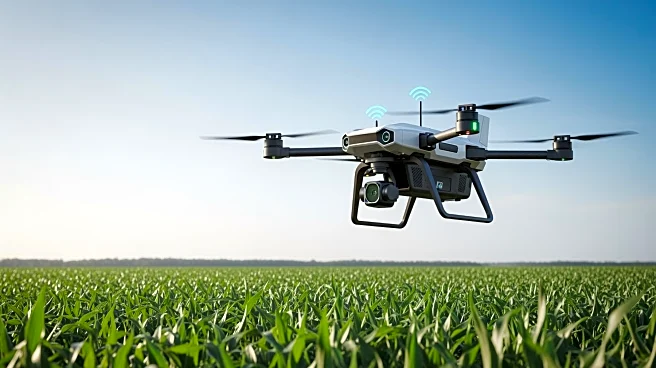What's Happening?
The adoption of AI in agriculture is being slowed by inconsistent and poor-quality data, as discussed at the World Agri-Tech Innovation Summit. While many farmers are interested in AI, only a small percentage
are knowledgeable about it. The lack of standardized data makes it difficult for AI to provide accurate predictions and tangible benefits. Farmers need assurance that agtech solutions will improve farm profitability, as past experiences with biologicals and robotics have been disappointing.
Why It's Important?
The integration of AI in agriculture has the potential to revolutionize farming practices by improving yields, reducing input costs, and enhancing quality. However, the success of AI depends on the availability of high-quality, standardized data. Without reliable data, AI cannot deliver the expected benefits, which may deter farmers from adopting these technologies. Addressing data quality issues is crucial for realizing the full potential of AI in agriculture and ensuring that farmers can make informed decisions.
What's Next?
Efforts to improve data quality and standardization in agriculture are essential for boosting AI adoption. This may involve developing better data collection methods and creating uniform databases. As farmers become more aware of the benefits of AI and digital farming platforms, they may be more willing to invest in these technologies. The focus will likely be on demonstrating the return on investment and tangible benefits of AI solutions to encourage widespread adoption.
Beyond the Headlines
The challenges of data quality in agriculture highlight broader issues related to digital transformation in the sector. Ensuring data security and privacy, as well as interoperability between different systems, are critical for successful AI implementation. The shift towards data-driven farming practices may also lead to changes in how agricultural businesses operate, with increased emphasis on technology and innovation.









